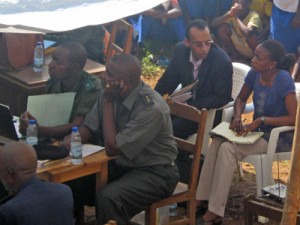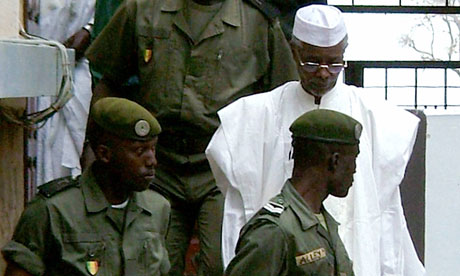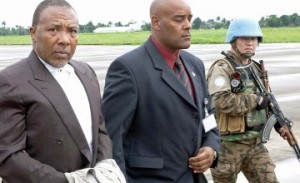By Ryan Aliman
Impunity Watch Reporter, Africa
PRETORIA, SOUTH AFRICA – In a landmark decision, the South African Constitutional Court ruled, on Friday, 27 July 2012, that any person living in South Africa accused of offences abroad cannot be extradited or deported to a country that allows the death penalty unless that country provides written assurance that the accused will not be executed.
- South African Constitutional Court decides on the Phale and Tsebe case. (Photo Courtesy of Eyewitness News)
The Constitutional Court in Johannesburg rejected an appeal brought by the government in an attempt to overturn an earlier ruling that any transfer of Batswana nationals Jerry Phale and Emmanuel Tsebe to Botswana without prior assurances that the death penalty would be unlawful.
The highest Court’s ruling applies to any extradition or deportation case that puts an individual at risk of the death penalty.
Both Phale and Tsebe were wanted in Botswana for murder — an offense punishable by death. To escape prosecution, they fled to South Africa illegally. Upon notice of their illegal status, South Africa’s Department of Home Affairs sought to deport them.
If extradited, the two men were likely to face the death penalty.
Both Phale and Tsebe were included in the judicial process and decision despite the fact that Tsebe had already died before the Court could render a verdict. This was because both his lawyers and the state wanted the original application to be heard.
In the ruling, Justice Edwin Cameron reasoned, “when the constitution was adopted in 96 we as a nation chose a path to create a new society based among others the values of human dignity and the advancement of human rights and the court holds that handing over someone to a state will be a breach of the state’s obligation.”
The South African government voiced concerns over the ruling. The government was highly concerned that South Africa could be perceived “as a safe haven for illegal foreigners and fugitives from justice”. Acting Justice Zondo said that the situation would not arise “if countries seeking an extradition of someone in Mr. Phale’s position would be prepared to give the requisite assurance”.
Meanwhile, Amnesty International Africa Deputy Director Noel Kututwa said that the Constitutional Court’s decision is meant to exemplify to other states who have abolished the death penalty that they cannot simply “wash their hands” of their possible contribution to death sentences elsewhere. “Under international law, an abolitionist state is absolutely prohibited from forcibly transferring a person, who could be subject to the death penalty, to a retentionist State, unless reliable assurances have been obtained which effectively eliminates that risk,” Kututwa added.
For further information, please see:
Amnesty International – Landmark Legal Ruling says South Africa Cannot Deport People at Risk of Death Penalty – 30 July 2012
East Coast Radio – Concourt Upholds Death Penalty Ruling – 27 July 2012
Eyewitness News – Death Penalty Ruling Welcomed – 27 July 2012
Business Day – Top Court Clamps Down on Extradition to Death- Penalty Countries – 27 July 2012
SABC News – Two Botswana Citizens won’t be Deported – 27 July 2012




